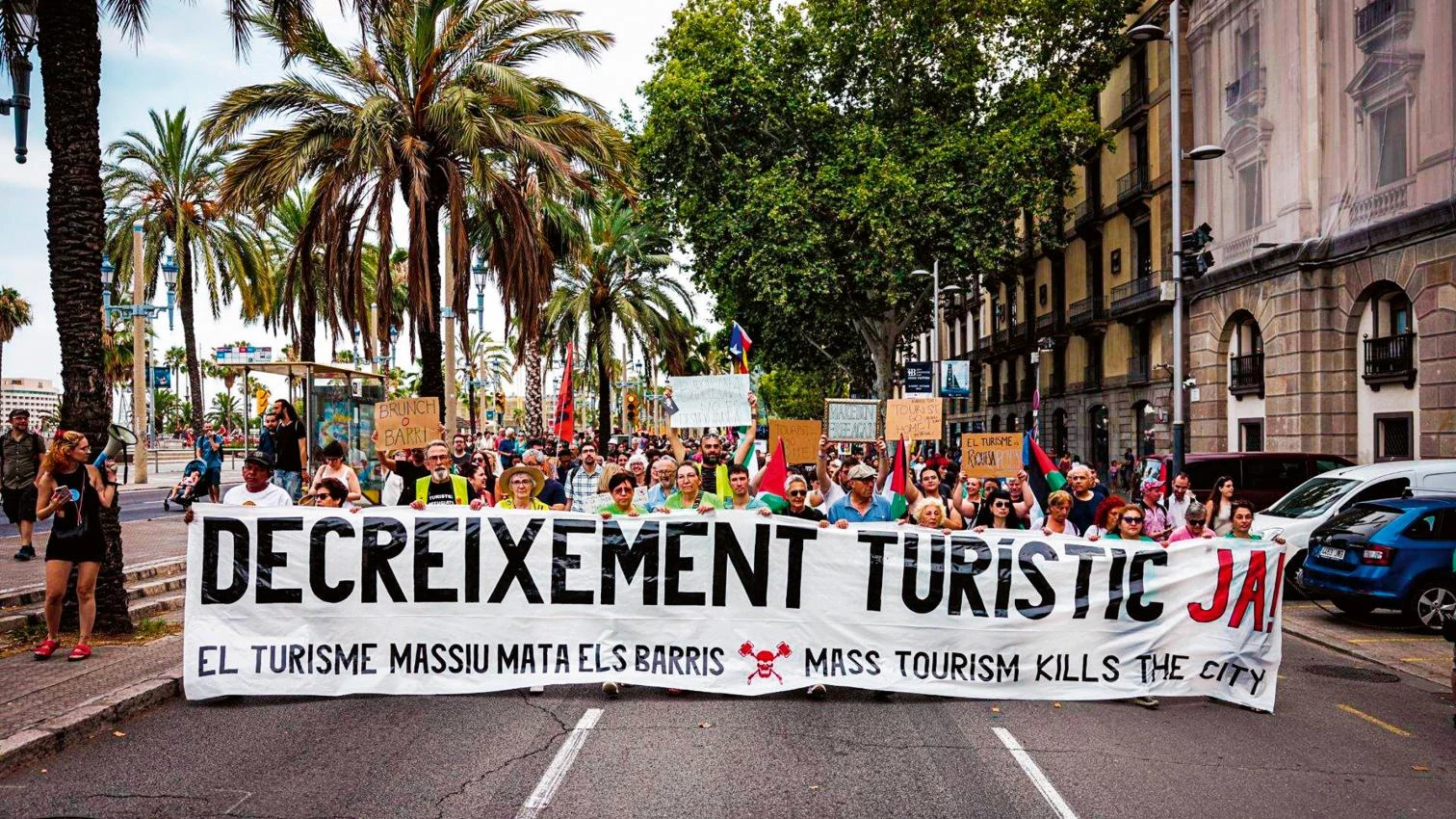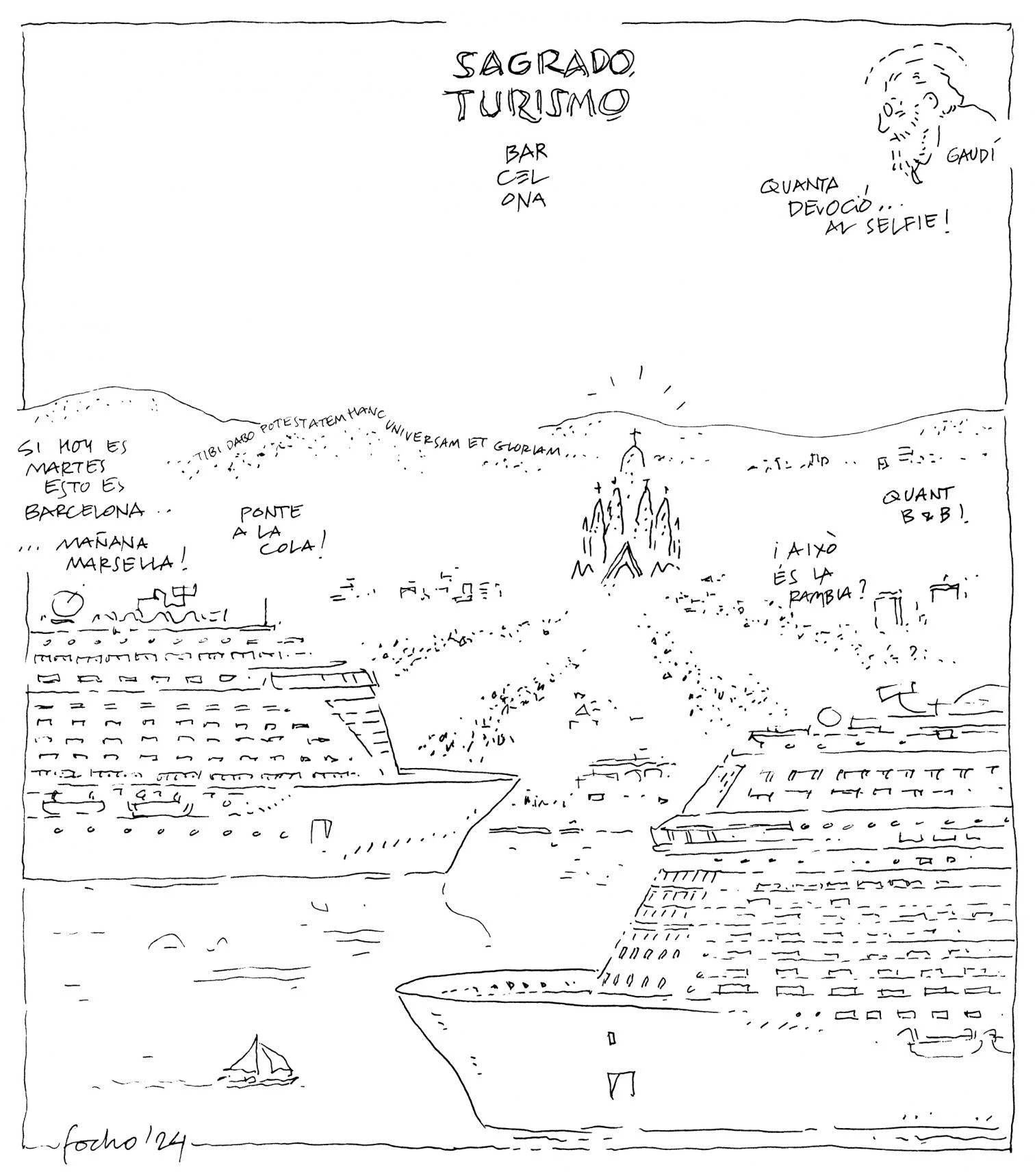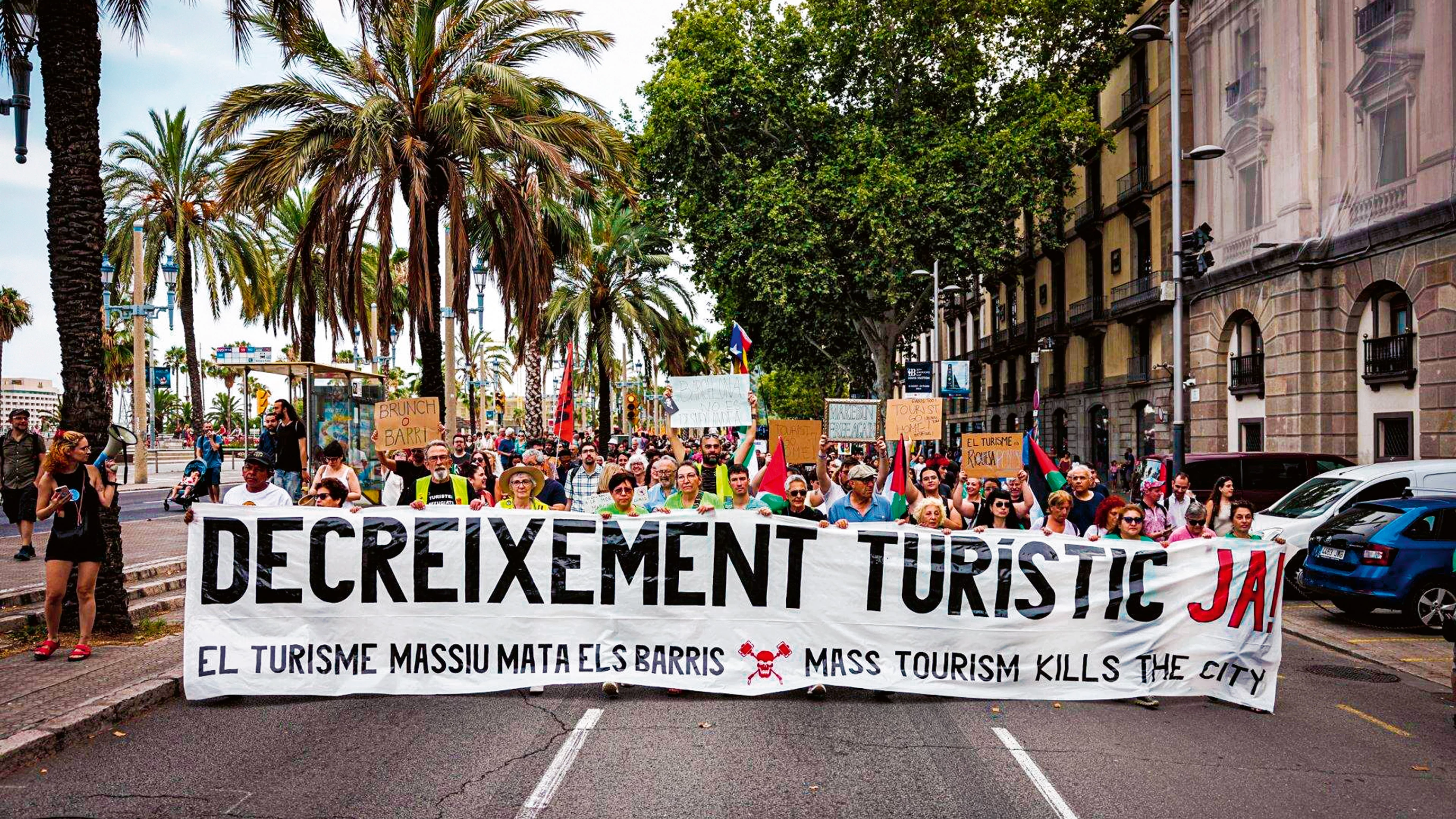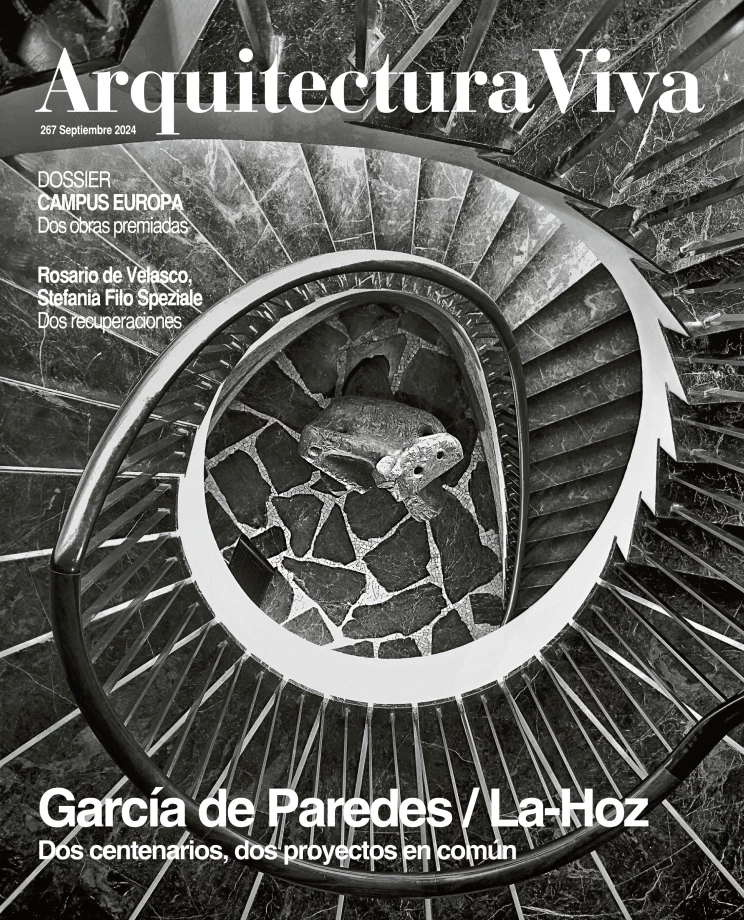
© Montse Giralt
The word ‘tourism’ is a reminder that there is nothing new about traveling to certain places. Yet it is hard to find many parallelisms between the voyages of those aristocratic scholars and amateurs who passionately surerendered themselves to a long, unhurried grand tour, and the ‘fastfood’ tourism of charter flights, ‘express’ cruises, and mindless selfies. If travel in the past was a luxury elites took pride in, now it is an activity anyone can aspire to, so much that it is even perceived as a basic right, or a sign of being part of a Western middle class avid for beautiful places and ‘experiences.’
No one can deny the personal enrichment that tourism can give, just as one is hard put to question the material and economic profit tourists have brought to so many cities. But at this point in time, when modern tourism is already more than a hundred years old, it is important to acknowledge the bad things about massification, and to deal with them. Intellectuals denounce the banality of selfie culture while local populations find themselves assaulted by the constant presence of visitors who crowd the spaces of everyday life and demand their part of already precarious ecological and infrastructural resources. Add to this picture the tourist apartments that tend to empty neighborhoods of their longtime residents and jack up rental prices, in so many cases making tourism a huge chronic problem. We are all potential tourists. For this very reason, beyond recipes and facile ideologies, debating on tourism is but a way of debating on what it is today that makes us good citizens.







